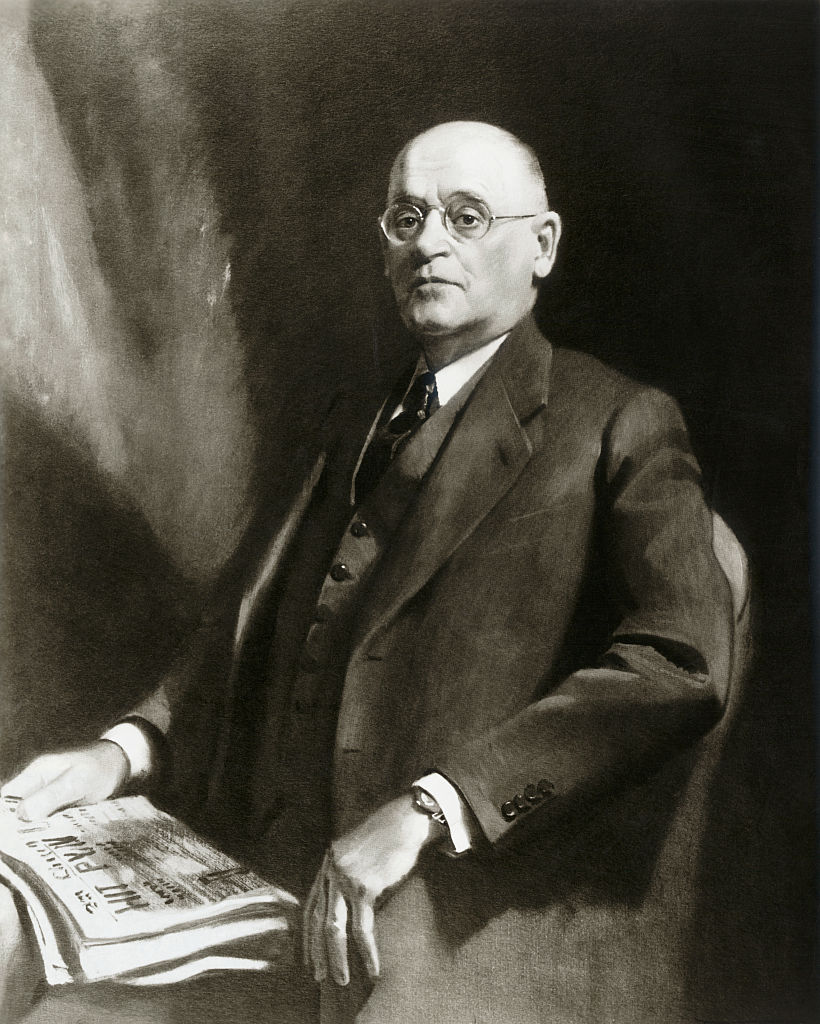What was Will Kellogg's net worth?
Will Kellogg was an American businessman who had a peak net worth of $66 million. That's the same as around $1.3 billion in today's dollars after adjusting for inflation. The story of W.K. Kellogg exemplifies the American dream – a tale of innovation, perseverance, and philanthropy. From humble beginnings, he built an empire based on a simple product, while never losing sight of his commitment to improving the lives of others. His influence on American business practices, food manufacturing, and philanthropic giving continues to resonate more than a century after he first began selling corn flakes to the American public.
Will Keith Kellogg, commonly known as W.K. Kellogg, transformed American breakfast habits and built one of the world's largest food manufacturing companies through his innovation and business acumen. Born in Battle Creek, Michigan in 1860, he spent his early years working as a broom salesman and bookkeeper before joining his brother, Dr. John Harvey Kellogg, at the Battle Creek Sanitarium.
At the sanitarium, which promoted healthy living through diet and exercise, W.K. worked as the business manager while his brother served as the medical director. The brothers accidentally discovered the process of creating wheat flakes in 1894 while experimenting with different ways to make grain-based foods for the sanitarium's patients. In 1898, they stumbled upon a method for making corn flakes, which would eventually revolutionize breakfast cereals.
W.K. saw the commercial potential in their discovery and wanted to mass-market the cereal to the general public. However, this created tension with his brother, who preferred to limit sales to sanitarium patients and insisted on keeping the recipe as it was – bland and unsweetened. In 1906, after years of disagreement, W.K. broke away from his brother and founded the Battle Creek Toasted Corn Flake Company, which later became the Kellogg Company.
Key to Kellogg's success was his understanding of marketing and brand building. He became one of the first manufacturers to print his signature on every package as a personal guarantee of quality. He launched extensive advertising campaigns, including pioneering the use of full-page newspaper ads and creating the first cereal premium – the Funny Jungleland Moving Pictures Book. He also introduced innovative packaging, including the first cereal box with an inner sealed wrapper to maintain freshness.
During the Great Depression, while many companies cut back, Kellogg doubled his advertising budget and invested in new technologies. He also introduced new products and shifted to a six-hour workday, creating additional jobs in the community. This counter-intuitive strategy helped the company thrive during difficult economic times.

W.K. Kellogg (via Getty)
Beyond his business success, Kellogg was a notable philanthropist. In 1930, he established the W.K. Kellogg Foundation, which became one of the world's largest private foundations. He also provided the foundation $66 million, which was approximately 97% of his net worth at the time, leaving himself with "just" $2 million to live off for the rest of his life. The foundation focused on improving the health, happiness, and well-being of children, particularly in his home state of Michigan. He eventually donated the majority of his fortune to the foundation, demonstrating his commitment to giving back to society.
Kellogg's commitment to quality and innovation extended to agriculture. He established the W.K. Kellogg Arabian Horse Ranch in Pomona, California, which became renowned for breeding Arabian horses. The ranch was later donated to California State Polytechnic University, Pomona, where it continues to operate as part of the university's animal science program.
Despite becoming nearly blind in his later years, Kellogg remained active in business and philanthropic activities. He maintained a strong interest in the foundation's work and continued to influence its direction. His business philosophy emphasized quality, innovation, and service to the community – principles that continue to guide the Kellogg Company today.
When he died in 1951 at the age of 91, W.K. Kellogg had transformed a small health food business into a global food manufacturing empire. His legacy lives on not only through the Kellogg Company, which continues to be a leader in the food industry, but also through the W.K. Kellogg Foundation, which has distributed billions of dollars in grants to support education, health, and agriculture initiatives worldwide. Today the W.K. Kellogg Foundation is one of the richest foundations in the world with over $9 billion in assets.
/2012/12/wk-2.png)
/2020/01/mmp.jpg)
/2020/08/dp.jpg)
/2015/04/Momofuku-Ando-picture.jpg)
/2010/08/David-Murdock.jpg)
/2021/12/ray-kroc2.jpg)
/2009/12/Denise-Richards.jpg)
/2020/04/Eddie-Vedder.jpg)
/2025/03/sami.png)
/2012/12/Brooke-Mueller.jpg)
/2013/10/Jeff-Ament-1.jpg)
/2023/03/Matt-Cameron.jpg)
/2014/08/GettyImages-458847397.jpg)
/2023/05/Jelly-Roll.jpg)
/2009/10/Bono.jpg)
/2022/11/charlie-sheen.jpg)
/2013/10/Mike-McCready.jpg)
/2012/12/wk-2.png)
/2020/01/mmp.jpg)
/2010/08/David-Murdock.jpg)
/2015/04/Momofuku-Ando-picture.jpg)
/2012/08/bernie.jpg)
/2020/09/alf2.jpg)
/2009/09/Warren-Buffett.jpg)